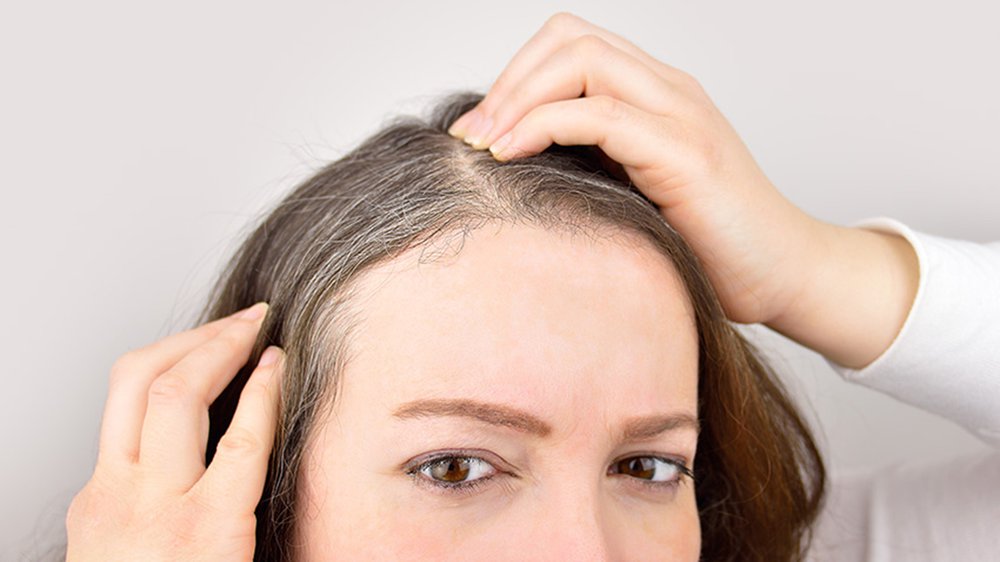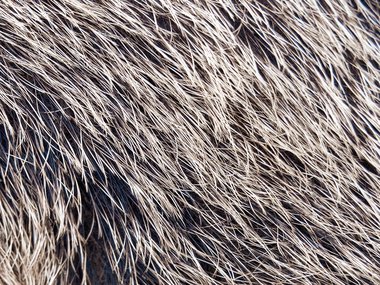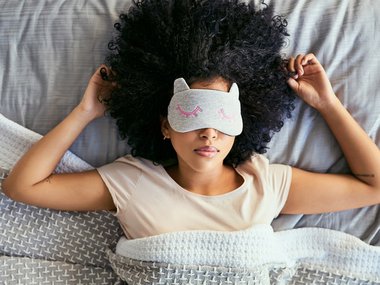Question Your World: Does Stress Really Make Your Hair Go Gray?!
Raise your hand if you’ve experienced any stress recently. We don't need to see you to know that most everyone has their hand raised high in the air. Living through a pandemic and all the other compounding stresses of life has been challenging to say the least.
In the past we’ve heard that old saying about stress making you go gray. Scientists actually have studied this phenomena and have some interesting information to share about the mechanics of how we go gray. Does stress really make your hair go gray?!
Let’s see ... life in the last several months has included distancing from loved ones to prevent spreading the pandemic, juggling virtual and/or in-person school schedules, washing hands all the time, not touching your face, ordering groceries before pick up times end for the day, Zooming the parents to make sure they’re okay, reminding yourself to not touch your face, checking your toilet paper supply, washing hands again, keeping an eye on the news, and more. Basically daily life has gotten far more stressful. So, how’s this stress factoring into our hair?
We’ve often heard about how stress can gray a colorful head of hair, famously documented in photos of incoming and outgoing heads of state. Science actually has an answer for this now! Partially, at least.

Image credit: Getty Images
First of all, don't worry. It's not just you, many people and even other animals go gray. For example, you've probably heard of silverback gorillas, they, too, will go gray with age. Also, in a recent study scientists observed how mice also grow gray fur after bouts of acute stress. Yes, this research was done on mice, but we share a lot of the same bio-functions and infrastructure so pay attention!
There are two types of stress: chronic stress is long-term stress like managing emotional conditions or living in a dangerous area, and acute stress is short-term stress such as traffic jams or getting hurt. This study observed that as an individual experiences bouts of acute stress, the body releases a neurotransmitter and hormone called noradrenaline. This is the chemical that's pumped through us to get us ready for action, an evolutionary "flight or fight" function that we all carry.
Our ancestors may have experienced bouts of acute stress during a potential animal attack. Similarly we may experience it when we are in a fender bender. Either way, acute stress leads to the release of noradrenaline. This burst of chemicals to prep us for action has a trade off though: it also depletes our melanocyte stem cells, which are responsible for our hair color.
Now, because we know how it's happening does not mean we know why it's happening! Did having gray hair have any ancient evolutionary advantage? Perhaps it's the badge one earned for having survived that long in life, making them into early versions of “elders” from whom others could learn survival skills. We just don't know, but perhaps future research may answer that as well.
Going gray could also be a result of other factors, too, such as genetics, byproducts of disease, and physical stresses on your scalp and hair from sunlight exposure or daily maintenance, for example.
Scientists also confirm that gray hair does make you look more distinguished ... as in it distinguishes you from younger people!
The Museum is hard at work helping you to discover your world despite dramatically reduced financial resources. If you'd like to help us continue this work, click here to learn how.


